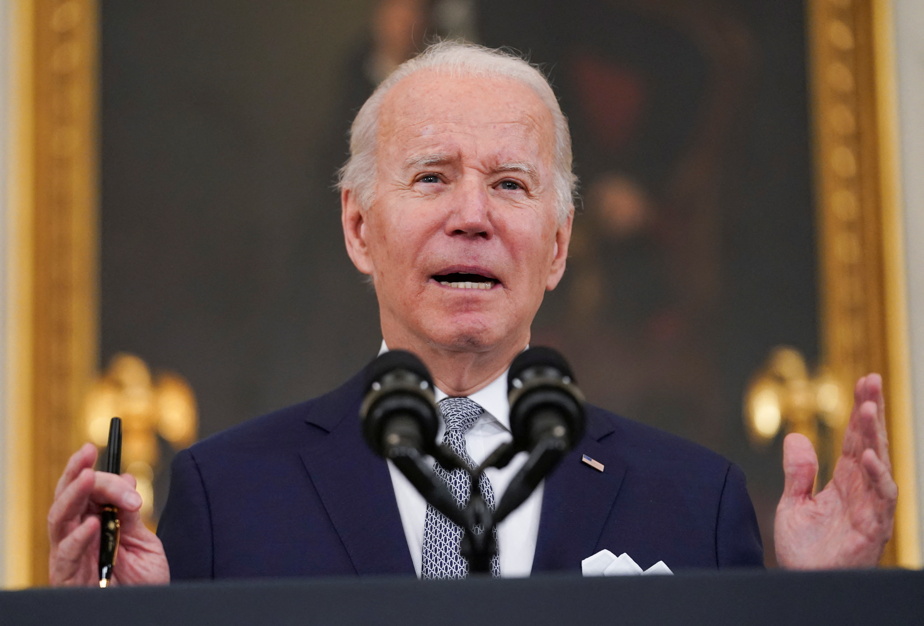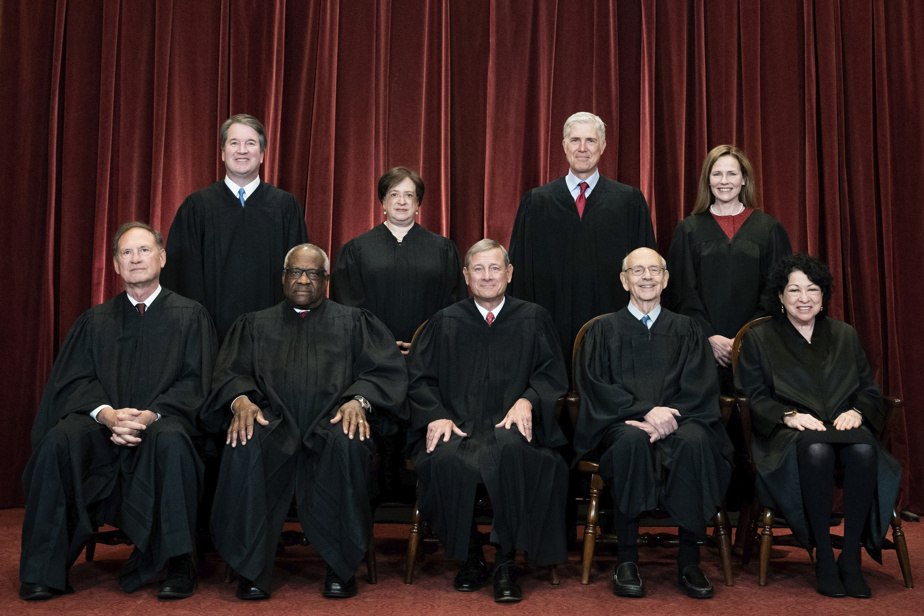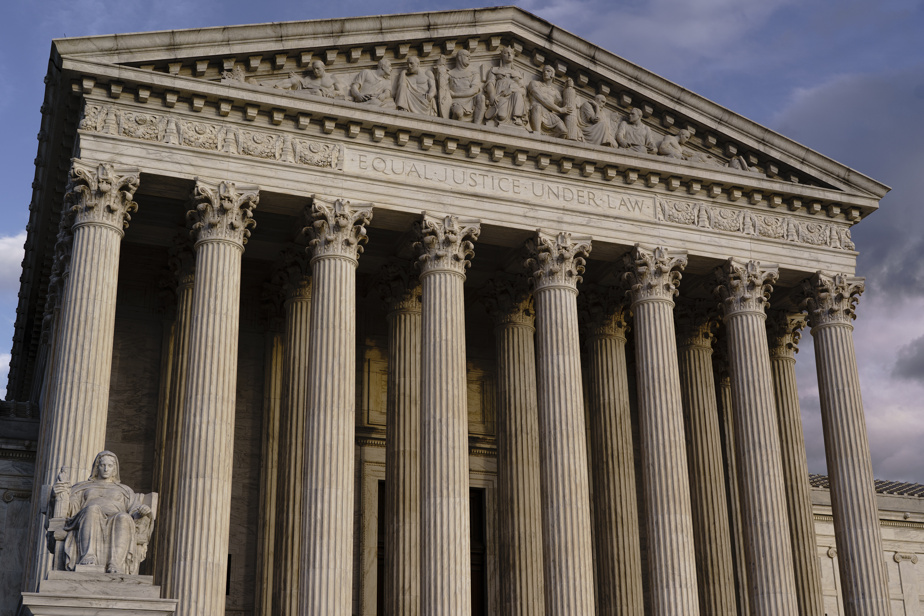(Washington) The US Supreme Court on Friday appeared divided over the vaccine commitment that Joe Biden wanted to certain companies, progressive judges sounded very supportive and conservatives more skeptical.
But a majority of the nine justices seem to support a measure that would require vaccinating employees of health structures that benefit from federal subsidies.
After months of trying to persuade the hesitant, the Democratic president announced in September that he wanted to make vaccination mandatory, especially in companies with more than 100 employees, which would have affected about 80 million employees.
Those who are not vaccinated in this way must wear a mask and undergo weekly tests.
Joe Biden had also announced that vaccination would be mandatory for employees of federally supported health structures, or about 10 million people.

Photo by Kevin Lamarck, Reuters Archives
United States President Joe Biden
The Federal Occupational Safety and Health Agency (OSHA) has given companies until February 9 to apply the rule, with the risk of being fined.
But in the country of individual liberties, where 62% of the population is fully vaccinated, these measures were immediately denounced by elected Republican officials and part of the economic world.
A series of legal actions led to contradictory decisions, and the Supreme Court agreed to allocate an extraordinary hearing to it and hear arguments on vaccination for employees of health structures.
Effects on the economy
On Friday, the three progressive justices appeared clearly leaning in favor of both measures.
“Why shouldn’t it be necessary to reduce serious risks?” Judge Elena Kagan asked business association lawyers opposing the measure.
“It’s a pandemic that has killed nearly a million people,” she said. This is the “biggest public health risk this country has had to confront in a century,” the judge said, and “this policy is the most likely to put an end to all of this.”
Scott Keeler, who represents business associations, asserted that mandatory vaccination in companies with more than 100 employees will prompt employees to quit.
Such a rule would lead to “permanent replacement of employees which will affect our national economy,” he said.
Benjamin Flowers, the Ohio State representative, also voiced his opposition, asserting that the rule “was not intended to regulate danger in the workplace.”
Speaking by phone after he tested positive for COVID-19, Benjamin Flowers said the disease was “a danger we all face, when we wake up with our families, when we stop for coffee on the way to work.”
While John Roberts, the court’s governor, acknowledged that it was “necessary to address the problem,” he joined other justices of his side, skeptical of the federal administration’s authority to enforce such rules.
“That’s something the federal state hasn’t done before, right, compulsory vaccination?” Asked.
“Traditionally, states have only the responsibility to oversee vaccine obligations,” conservative judge Neil Gorsuch added.
“Not a fad”
Progressive Judge Stephen Breyer estimated, in response to the resignation argument, that “some people” might quit their jobs, “perhaps 3%.”
“But more people can quit smoking when they find out that they have to work with people who are not immune, because that means they can get sick,” he said.

Photo by Erin Schaaf, Press Associated Archive
Justices of the Supreme Court of the United States
Elizabeth Prilugar, the state’s federal representative to the court, emphasized that the vaccination obligation “is not new.” “Most of us have had vaccination requirements all our lives,” she said.
Louisiana Representative Elizabeth Morrell, who opposed the measure on health workers, called it an “unprecedented bureaucratic coup.” According to her, these employees will be forced to undergo “unfair, irreversible and coercive medical treatment, a vaccine against COVID-19.”
Conservative judges seemed more receptive to the arguments for this rule.
The Supreme Court’s decision is expected soon, perhaps in the next few days.
The Supreme Court, which includes six of the nine conservative justices, has so far upheld vaccine obligations imposed in academia or by local authorities.
If he stops the federal administration’s action, it would be a major setback for Joe Biden, who has made fighting the epidemic one of his priorities, but is facing an outbreak of pollution under the influence of the Omicron variable.

“Extreme twitteraholic. Passionate travel nerd. Hardcore zombie trailblazer. Web fanatic. Evil bacon geek.”

